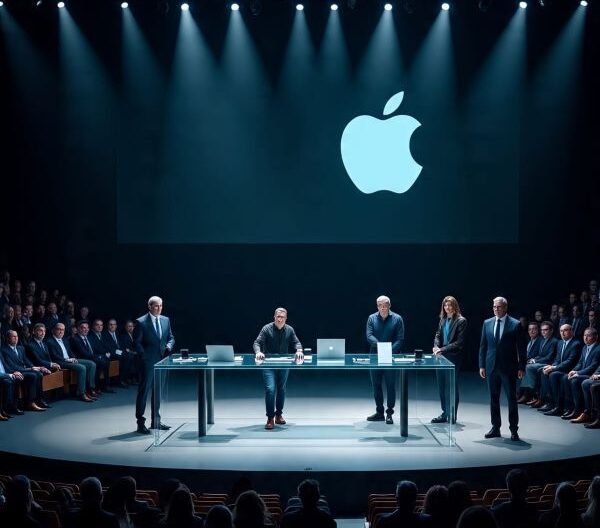
The fall tech season just delivered a double dose of innovation, with Apple and Google showcasing their latest hardware breakthroughs. From spatial computing to ultra-thin smartphones, here’s a breakdown of the most compelling releases—and what they mean for users and developers alike.
🍏 Apple Event Highlights
iPhone 17 Series
- Models: iPhone 17, 17 Pro, 17 Pro Max, and the ultra-slim iPhone Air
- Key Features:
- A19 chip with 6-core CPU and 5-core GPU
- “Center Stage” 18MP front camera with square sensor
- All-day battery with up to 39 hours video playback on Pro Max
- Dual-capture video (front + rear simultaneously)
- Why It Matters: Apple’s camera and battery upgrades push mobile content creation and productivity further, while the iPhone Air’s 5.6mm profile sets a new design benchmark.
iPad Pro M5
- Specs:
- M5 chip for pro-grade performance
- Dual selfie cameras optimized for landscape and portrait
- Ultra-slim bezels for immersive display
- Use Case: Ideal for creatives and multitaskers—video editing, design, and virtual collaboration get a serious boost.
Apple Vision Pro 2
- Upgrades:
- M4/M5 chip replacing M2
- Enhanced spatial computing capabilities
- Impact: Apple doubles down on mixed reality, aiming to make Vision Pro 2 a mainstream productivity and entertainment tool.
Apple TV 4K (2025)
- Highlights:
- A17 Pro chip + 8GB RAM
- Wi-Fi 7 and Bluetooth upgrades
- Rumored built-in FaceTime camera
- Why It’s Cool: It’s not just a streaming box—this could become your living room’s video conferencing hub.
🤖 Google Event Highlights
Note: Google’s event focused more on ecosystem refinement than radical hardware shifts, but a few standout devices emerged.
Pixel 9 & Pixel 9 Pro
- Features:
- Tensor G4 chip with improved AI processing
- Adaptive display refresh rates
- Enhanced Night Sight and Magic Editor tools
- Takeaway: Google continues to lean into AI-powered photography and personalization.
Pixel Watch 3
- Upgrades:
- Better battery life
- More health sensors (skin temperature, stress tracking)
- Deeper Fitbit integration
- Why It’s Useful: A stronger contender in the wearables space, especially for health-conscious users.
Nest Hub Max 2
- Rumored Features:
- Face recognition for personalized dashboards
- Matter support for smart home interoperability
- Trend: Google’s smart home strategy is becoming more seamless and privacy-aware.
These new Apple and Google gadgets are poised to reshape user experiences across productivity, creativity, health, and everyday convenience.
🔧 Productivity & Performance
Apple’s M5 iPad Pro & Vision Pro 2
- Impact: These devices blur the line between tablet and desktop. The M5 chip delivers workstation-level power in a portable form, ideal for video editors, designers, and multitaskers.
- Vision Pro 2 introduces spatial computing into mainstream workflows—think immersive meetings, 3D modeling, and multitasking across virtual screens. It’s not just futuristic—it’s functional.
Google Pixel 9 with Tensor G4
- Impact: The AI-first architecture means smarter suggestions, faster voice commands, and real-time transcription. For business users, this translates to smoother task automation and better contextual awareness.
🎨 Creativity & Content Creation
iPhone 17 Pro Series
- Impact: Dual-capture video and enhanced front camera open up new possibilities for vloggers, educators, and social media creators. You can record reactions and scenes simultaneously—no post-editing required.
- ProRAW and cinematic modes continue to democratize high-end content creation.
Pixel 9’s Magic Editor & Night Sight
- Impact: Google’s AI tools let users edit photos with near-professional precision—removing objects, adjusting lighting, or even changing backgrounds. It’s creativity without complexity.
🧠 Health & Wellness
Pixel Watch 3
- Impact: With new sensors for stress and temperature, users gain deeper insights into their physical and mental health. Combined with Fitbit’s ecosystem, it’s a powerful wellness companion.
- Use Case: Daily stress tracking, sleep optimization, and proactive health alerts.
🏠 Smart Living & Ecosystem Integration
Apple TV 4K (2025)
- Impact: With Wi-Fi 7 and potential FaceTime support, it becomes a hub for entertainment and communication. Imagine hosting virtual movie nights or family calls directly from your TV.
Nest Hub Max 2
- Impact: Personalized dashboards and Matter support mean smarter, more secure homes. Face recognition tailors info to each user—weather, calendar, reminders—without needing to log in.
🧩 Ecosystem Synergy
Both companies are doubling down on ecosystem fluidity:
- Apple: Seamless handoff between devices, spatial computing integration, and continuity features make switching between iPhone, iPad, and Vision Pro effortless.
- Google: AI-driven personalization across Pixel, Watch, and Nest devices creates a unified experience that adapts to user behavior.
⚡ Bottom Line
These aren’t just spec bumps—they’re strategic upgrades that empower users to do more, faster, and smarter. Whether you’re a creator, a remote worker, a health enthusiast, or just someone who wants tech that “gets you,” this season’s releases deliver meaningful improvements.
🔍 Final Thoughts
Both Apple and Google are refining their ecosystems with smarter chips, better cameras, and more immersive interfaces. Apple’s push into spatial computing and ultra-thin design sets the tone for premium innovation, while Google’s AI-first approach keeps its devices deeply personalized and user-centric.
You might also like our TUTEZONE section, which contains exclusive tutorials on making your life simpler using technology.




